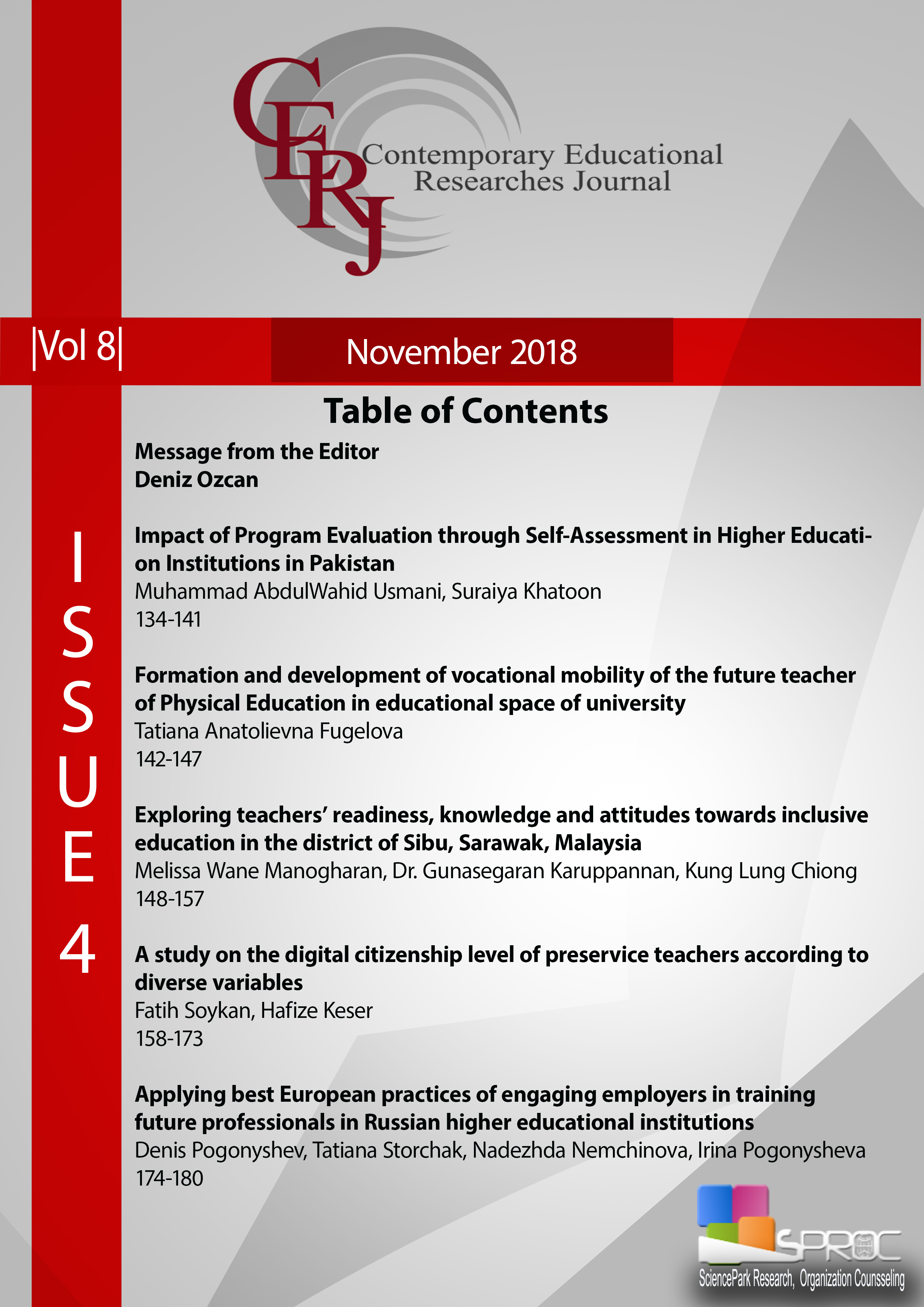Formation and development of vocational mobility of the future teacher of Physical Education in educational space of university
Main Article Content
Abstract
The article is based on the idea of conjugation between social and personal factors in the preparation of a teacher of Physical Education (PE). It creates the conditions for building a harmonious relationship with the surrounding world, finding one’s place in society, vocational orientation, formation of readiness for adaptability and mobility in the future vocational activity. The conditions, ensuring the formation and development of vocational mobility of the future teacher of PE in the socio-cultural educational space of high school, are dialogization, taking part of the future experts in project activities at various levels. We have considered the process of formation and development of vocational mobility of the future expert in the social and cultural educational space of high school within the framework of the continuing education system. The concept of continuing education involves the inclusion of dialogue relationship, which contributes to the formation and development of vocational mobility of the future teacher of PE at all levels: knowledge, skills, creativity, experience in value and emotional orientation. The transition from one level of formation of vocational mobility to the other one in the socio-cultural educational space of high school is provided by the realization of the complex of strategic conditions and pedagogical tactics (pedagogical support, educational accompaniment, enhance social and vocational values), which contribute to the development of the readiness of the future teachers of PE to changes, innovations in the process of vocational activity.
Keywords: vocational mobility, educational space, continuing education, strategies and tactics of vocational mobility.
Downloads
Article Details
Authors who publish with this journal agree to the following terms:
- Authors retain copyright and grant the journal right of first publication with the work simultaneously licensed under a Creative Commons Attribution License that allows others to share the work with an acknowledgement of the work's authorship and initial publication in this journal.
- Authors are able to enter into separate, additional contractual arrangements for the non-exclusive distribution of the journal's published version of the work (e.g., post it to an institutional repository or publish it in a book), with an acknowledgement of its initial publication in this journal.
- Authors are permitted and encouraged to post their work online (e.g., in institutional repositories or on their website) prior to and during the submission process, as it can lead to productive exchanges, as well as earlier and greater citation of published work (See The Effect of Open Access).
